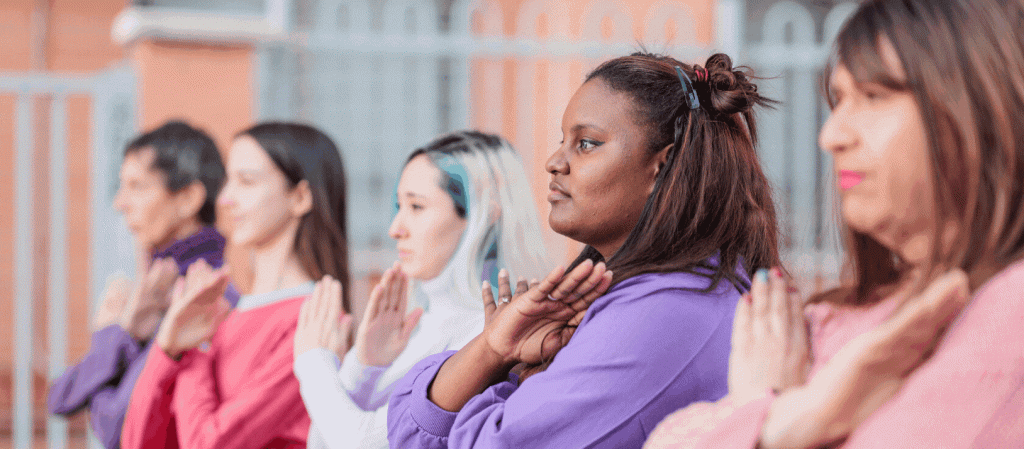President Cyril Ramaphosa’s government continues to fail the women in the country who continue to face horrendous crimes against them, with little to no action from the country’s duty bearers, Amnesty International South Africa said as it launched its #InterruptBrokenPromises campaign.
President Ramaphosa has announced a number of initiatives to help fight gender-based violence and femicide (GBVF), but to date, very few of these have been implemented and GBVF remains high in the country.
“GBVF in South Africa is pervasive, yet the state does not seem to be taking this seriously, despite it paying lip service in its commitment to help fight the scourge,” Amnesty International South Africa Executive Director Shenilla Mohamed said.
In March 2020, Cabinet approved the National Strategic Plan (NSP) on Gender-Based Violence and Femicide, in an effort to tackle this shadow pandemic. However, the National Council on Gender-Based Violence and Femicide, which is supposed to be the custodian of the NSP and oversee its implementation, has not yet been established.
In 2020, the government also committed to reducing the GBVF related DNA backlog from 16,000 to 5,000 by March 2020. Not only did this skyrocket to 82,000 cases during 2021/2022 but there is still an entire DNA backlog of 58,000 cases, delaying justice for victims and survivors of GBVF.
At the launch of the Gender-Based Violence Response Fund on 4 February 2021, President Ramaphosa announced that the government allocated R21 billion to implement the NSP over the medium-term expenditure framework. However, it is not clear how the money has been used and where it has been allocated to.
In 2021, the SAPS committed to training 919 police officers on proactive GBV interventions, and 565 police officers on reactive interventions in the first year of the NSP on GBVF’s implementation. Only 272 police officials were reported to have been trained in the first year of implementation on proactive interventions and 104 police officers on reactive interventions. This is only 29.6% and 18.4% of its targets respectively. Although SAPS reported training 1,763 members on courses related to GBV in the SAPS 2020/2021 annual report, this was not reported against any specific targets and does not align with numbers reported under the NSP.
“We can no longer accept excuses from the state on why these initiatives have not been implemented. We cannot sit back and allow empty promises to be made. President Cyril Ramaphosa and his government need to be held accountable for the promises they have made. Amnesty International has written to the Presidency, Minister of Finance and the Minister in the Presidency for Women, Youth and Persons with Disabilities and is currently waiting for feedback regarding funds that were allocated to address GBVF. We are concerned that the government continues to fail the women in our country,” Shenilla Mohamed said.
“It is not enough to only focus on changing social and cultural norms within society, just as it is not enough to only place the responsibility of addressing GBV at the feet of the justice system. It requires action from everyone and every sector, including inter-departmental collaboration across the government, as well as strong and capable leadership and accountability, which we are not seeing.”
In 2020/21 there were 155,062 crimes committed against women and 2,655 women were murdered. The total number of women murdered is equivalent to one woman being murdered every three hours. This is almost five times the global average.
Between October and December 2021, the SAPS received a total of 14,188 cases of sexual offences, of which 11,315 were cases of rape and 2,069 were cases of sexual assault.
Recently, President Ramaphosa signed three anti-GBV bills into legislation. But despite progressive legislation addressing GBV in South Africa, there are systemic failures in the implementation of policies and legislation. Merely amending legislation without ensuring its implementation is not enough.
“South Africa is still not safe for all who live in it and the state has a constitutional duty to ensure that everyone living in the country is safe and that their right to life, security and dignity are upheld,” Shenilla Mohamed said.
Background
Amnesty International South Africa launched the third phase of its gender-based violence campaign, #InterruptBrokenPromises on 19 April 2022.
It is time to #InterruptBrokenPromises by demanding:
- The immediate establishment of the National Council on Gender-Based Violence and Femicide, including the development of a costed and funded operational plan.
- The DNA backlog of 58,000 cases is cleared by the end of September 2022, as publicly committed to by Minister for Police Bheki Cele on 24 March 2022.
- The immediate rollout of appropriate, mandatory and continuous victim-centric training for personnel in the criminal justice system, increased transparency about how many people have been trained, and the impact of the training.
- For clear, measurable annual performance targets to be developed for every indicator of the National Strategic Plan on GBVF, and for this information to be made publicly available.
- For transparent, timely, accurate and regular progress reports to be made public and accessible on a bi-annual basis by all relevant government departments on the implementation of the above indicators and aligning their performance and targets across all annual performance plans, annual reports and the National Strategic Plan on GBVF.
For more information or to request an interview, please contact:
Genevieve Quintal, Media and Communications Officer, Amnesty International South Africa: +27 (0)64 890 9224; genevieve.quintal@amnesty.org.za
Public Document
****************************************
Amnesty International South Africa office, 97 Oxford Road, Saxonwold, Johannesburg, 2196
press@amnesty.org


